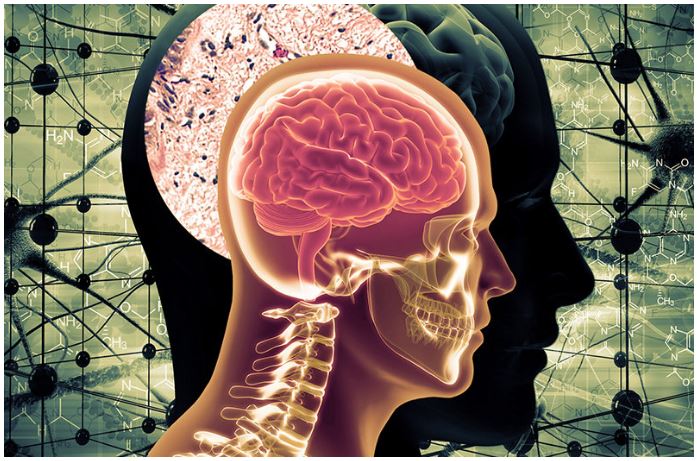Transforming Growth Factor – Beta Expression in the Ageing Brain: Relationship to Alzheimer Type Pathology (2015)
Alzheimer Type Pathology Dissertation – Transforming growth factor-beta (TGF-b) are multifunctional pleiotrophic proteins critical for various functions in the brain including cell cycle control, neurogenesis, synaptogenesis, angiogenesis and neuroprotection. The importance of TGF-b in neural functions is increasingly recognised in neuropathological disorders including Alzheimer type pathologies, neurodegenerative disorders (NDD) common in the ageing population.
To validate previous microarray findings that suggests a downregulation in expression of neurotrophic factors by astrocytes with increasing levels of Alzheimer type disorders. In order to do this TGF-b protein expression level and mRNA levels was analysed by immunohistochemistry (IHC) and quantitative polymerace chain reaction (qPCR) using human post-mortem temporal cortex derived from the Medical Research Council Cognitive Function and Ageing Study (MRC-CFAS).
A significant down-regulation in TGF-b expression was not demonstrated but a significant correlation was found between pyramidal neurons and small cells with increasing injury markers. The ageing process is an inevitable part of life which brings about changes in various aspects of human nature, including the brain. Molecular and cellular alterations have been observed in the normal ageing brain which results in cognitive decline.
The prefrontal cortex, including entorhinal cortex, and the hippocampus are the brain areas mostly affected by age changes, hence the common association of ageing with cognitive decline and memory loss. With advancing age, a decrease in volume can be observed due to loss and shrinkage of neuons and synapses. Other changes in the healthy brain include changes in myelination and increase in cerebral spinal fluid.
- 14,000 words – 78 pages in length
- Excellent use of literature
- Excellent analysis of subject area
- Well written throughout
- Ideal for Neuroscience students
1 – Introduction
The Ageing Brain: Healthy Versus Disease
The Pathology of Alzheimer’s Disease
The Role of Astrocytes in the Brain
Astrocytes in Neuropathology
Growth Factors in the Ageing Brain
Transforming Growth Factor – Beta (TGF-b)
Activation of TGF-bband TGF-b Pathway
Neuroprotective Effect by TGF-b
Hypothesis and aim of project
2 – Literature Review
Increase in Ageing Population
Normal Ageing Versus Alzheimer’s Disease
Astrocytes in Age-Related Neurodegenerative Pathologies
Functions of Astroglia
Astroglia in the Ageing and Impaired Brain
Growth Factor Expression in the Ageing Brain
Neurotrophic Factors
Neurotrophic Support
The Feedback Loop
Growth Factors
FGF
TGF
Conclusion
3 – Materials and Methods
Immunohistochemistry
Human Post-Mortem CNS Tissue
Single staining procedure
Dewaxing and Rehydration of the FFPE tissue sections
Antigen Retrieval Techniques
Immunohistochemistry on Formalin Fixed Paraffin Embedded Tissue
Antibody Optimisation
Immunostaining
Dual Immunostaining of FFPE human CNS tissue
Quantification and microscopy
Statistical Analysis
Quantitative Polymerase Chain Reaction (qPCR)
Materials
Microdissection of Astrocytes and RNA Extraction
Synthesis of Human cDNA
TGF-b primer design
Optimisation procedures
cDNA Quality Confirmation by PCR
Primer Optimisation
cDNA Optimization
qPCR for TGF-b mRNA
Data analysis
4 – Results
Immunohistochemistry analysis
Antibody Optimisation
Antigen Retrieval
Titration
Oligodendrocytes
Pyramidal Neurons
Layer I Cells
Small Cells
Dual Immunostaining
Neuropil and synaptic pattern of TGF-b immunoreactivity
Statistical Analysis
No Significant Relationship between TGF-b and Alzheimer type Pathology
Cytoplasmic and Nucleic Staining Variation
TGF-b Expression Correlates with Injury Markers
qPCR
Synthesis of cDNA
Primer Optimisation
Validating the Microarray Data
5 – Discussion
Validation of Microarray Findings
TGF-b Expression in the Lateral Temporal Cortex
TGF-b as a Neuroprotective Factor
Neuroprotective Pathway
Study Limitations
Future Work
References

